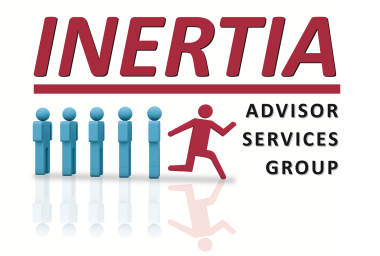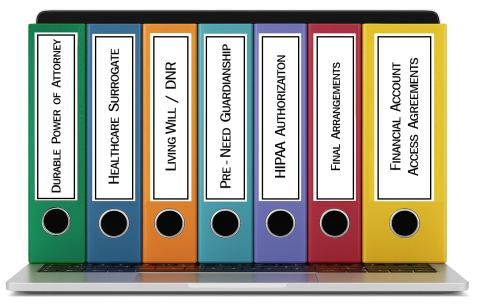Long-Term Care Planning Requires The Proper Legal Framework
A critical component of comprehensive planning—especially as clients age—is ensuring they've made informed decisions where financial and health considerations intersect. Every member of the advisory community — regardless of their discipline or role — should encourage or recommend that a client's legal framework is in place and up to date. Whether you specialize in investment management, tax strategy, insurance, or estate planning, you play a part in ensuring that your clients have addressed the legal documents necessary to support Healthcare in Retirement and Long-Term Care (LTC) Planning.
These are not just legal formalities—they are foundational components that empower caregivers, protect client intent, and ensure continuity of care and control when it matters most. Furthermore, without these legal documents, no one will have the authority to act—no matter how affluent the client—and no plan will work when care is needed most.
1. Durable Power of Attorney (DPOA)
The Durable Power of Attorney is a cornerstone of every client's legal framework. It authorizes a trusted individual—commonly referred to as the agent—to manage the client's financial affairs if they become incapacitated or unable to act on their own. A properly executed DPOA prevents costly disruptions and empowers the chosen agent to act with authority when needed most.
In the context of Long-Term Care (LTC) Planning, a valid DPOA ensures that financial responsibilities such as paying bills, managing investment accounts, repositioning assets for Medicaid eligibility, and making time-sensitive financial decisions can be handled without delay or court intervention. Since DPOA requirements vary by state, a document that is too general, outdated, or drafted in another jurisdiction may be rejected by financial institutions or fail to meet eligibility rules for state-specific Medicaid planning. That means the DPOA should be reviewed regularly to ensure it is current, appropriately structured, and tailored to the client's state of residence or frequently visited.
2. Healthcare Surrogate
Also referred to as a Medical Power of Attorney or Healthcare Proxy, a Healthcare Surrogate designation allows a trusted individual to make medical decisions on the client's behalf if they are unable to do so themselves. This document is essential in Long-Term Care (LTC) Planning, as it ensures someone has legal authority to consent to or decline treatments, select providers or facilities, and advocate for the client's preferences during a health crisis. Without this document, loved ones may face delays, confusion, or even legal barriers when urgent decisions need to be made.
While the Healthcare Surrogate and the Durable Power of Attorney are often assigned to the same individual, they serve distinctly different purposes. The Healthcare Surrogate covers medical decision-making, while the Durable Power of Attorney governs financial and legal authority. Each role requires a separate legal document, properly executed in accordance with the client's state of residence, and professionals across the advisory community should ensure that the Healthcare Surrogate designation is current, clearly names the appropriate party, and is properly executed. Inadequate or outdated healthcare directives can leave families powerless and patients vulnerable at a time when clarity and control are critical.
3. Living Will (with DNR)
A Living Will is a legal document that outlines a client's preferences regarding medical treatment in situations where they are unable to communicate and are facing a life-threatening condition. It typically addresses choices related to life-sustaining interventions such as resuscitation, mechanical ventilation, feeding tubes, and end-of-life comfort care.
It's important to distinguish between a Living Will and a Do Not Resuscitate (DNR) order. While a Living Will provides broad directives about end-of-life care, a DNR is a specific medical order that instructs healthcare providers not to perform cardiopulmonary resuscitation (CPR) if the client's heart stops or they stop breathing.
In many states, a DNR must be printed on a designated color of paper—such as yellow, pink, or orange—to be recognized and followed by emergency medical personnel. EMS teams are trained to look for these forms quickly during a crisis, and failure to present the correct format may result in full resuscitation, even if it contradicts the client's wishes. Some states also require a physician's signature or additional procedural steps for the DNR to be considered valid.
As with other legal directives, both the Living Will and DNR must be properly executed in accordance with the client's state of domicile. Without clearly documented and properly formatted instructions, families may face emotional, legal, and ethical turmoil during already difficult moments, and clients may receive treatment they explicitly declined.
4. Pre-Need Guardianship
A Pre-Need Guardianship allows a client to legally designate, in advance, who should be appointed by the court as their guardian if they become incapacitated. While this document does not immediately transfer authority, it provides formal guidance to the court by naming the individual the client trusts to manage their personal, legal, and financial affairs if guardianship becomes necessary.
It's important to distinguish this from the Durable Power of Attorney (DPOA). A DPOA allows a designated agent to act on the client's behalf without court involvement, often immediately or upon incapacity. In contrast, a Pre-Need Guardianship only takes effect if a court determines that a guardian is required. The court retains ultimate control, but this document guides the court's decision and helps avoid unwanted or contested appointments.
Pre-Need Guardianship can be especially valuable when there is concern that a DPOA may be challenged or rejected, when family conflict is anticipated, or when the client wishes to ensure a specific person is legally prioritized in any court proceedings. It adds an important layer of protection to incapacity planning, especially in complex family dynamics or when other legal documents may fall short. Guardianship law is highly state-specific, so this document must be properly structured and executed under the rules of the client's state of domicile.
5. HIPAA Authorization Form
A HIPAA Authorization Form gives named individuals permission to access a client's protected health information. Without it, even spouses or adult children may be blocked from receiving updates from healthcare providers, leading to delays and confusion during critical moments. While this document doesn't grant decision-making authority like the Healthcare Surrogate, it ensures that trusted individuals can receive medical updates, ask questions, and stay informed during a client's care journey.
As with other documents, the HIPAA Authorization should be executed appropriately in accordance with the client's state of domicile and reviewed regularly to reflect current relationships and preferences for effective Long-Term Care Planning.
6. Financial Account Access Agreements
Granting trusted individuals access to financial accounts ensures continued management of bills, investments, and other financial matters in the event of incapacitation. Without proper documentation, even those named in a Durable Power of Attorney may encounter delays or be denied access, especially if the institution requires additional internal forms. Taking the time to complete these access agreements helps avoid financial disruption when care is needed. It ensures that the broader Long-Term Care plan can be executed without unnecessary obstacles.
7. Final Arrangements
Planning for end-of-life arrangements is a critical component of a client's overall planning. A Final Arrangement document outlines preferences related to funeral and burial decisions, including cremation or traditional burial, service details, and other specific requests. Without clear guidance, loved ones are often left to make emotional and financial decisions without knowing the client's true wishes. Documenting these preferences in advance helps reduce stress, avoid conflict, and ensure that the client's values are respected.
While many states offer some level of reciprocity, clients who relocate or maintain dual residences—particularly snowbirds—must consult with an estate planning or elder law attorney in each relevant state. Without state-specific updates, even well-crafted documents can fail at the worst possible time due to technicalities in format, execution, or recognition. Legal enforceability isn't automatic—it must be intentional. Simply put, your client's essential planning requires a properly executed legal framework and up-to-date documentation. While Healthcare in Retirement and Long-Term Care may not be the primary goal, to ignore the legal mechanisms that make any plan executable is to leave both the client and their family exposed to unnecessary risk, delay, and confusion when care is needed most.
The information provided is an overview and is not meant to serve as legal advice. The laws regarding the documents mentioned are complex and can vary widely from state to state. Please consult an elder law specialist before making any legal decision or executing any legal documents.
20250708

